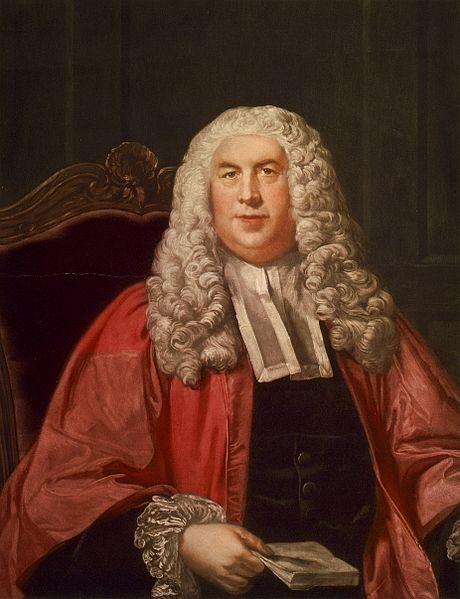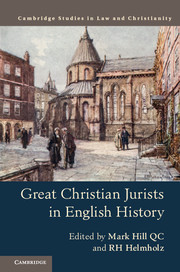
Christianity planted the seed that germinated into Western thought for two millennia. Yet the contributions of the faith, and its practitioners, remain unsung, underappreciated, and unheralded in an ever-secularizing west – a fact remedied in part by the book Great Christian Jurists in English History, edited by Hill and Helmholz.
 The book is reviewed in the latest essay for Religion & Liberty Transatlantic by Stephen F. Copp, Ph.D. Copp’s credentials – as an associate professor and former head of the department of law at Bournemouth University’s faculty of media and communication, as well as a visiting law professor at St. Mary’s University, Twickenham, in London – allow him to glean profound insights from this timely book.
The book is reviewed in the latest essay for Religion & Liberty Transatlantic by Stephen F. Copp, Ph.D. Copp’s credentials – as an associate professor and former head of the department of law at Bournemouth University’s faculty of media and communication, as well as a visiting law professor at St. Mary’s University, Twickenham, in London – allow him to glean profound insights from this timely book.
Copp writes:
The English legal system and common law have long been widely admired worldwide. They are associated with justice, efficiency, fairness, and indeed with a common-sense outlook produced by a focus on real-life problems. Less well-known and appreciated is the cardinal role played by Christian beliefs and believers in their development. As this role becomes more tenuous, it is unclear whether this heralds perhaps a new direction for the common law when it will be invigorated by fresh sources of inspiration – or whether it is sailing into uncharted waters without a meaningful rudder or anchor.
The editors review the careers of 14 jurists, whose lives span from approximately 1210 to 1999. Copp gives a sense of their impact upon the English legal tradition and all nations of the world, including the U.S., whose jurisprudence is (at least in part) derived from it:
The concrete achievements of the Christian jurists described in this book were gargantuan. Their writings did much to define and describe the common law and, in that sense, gave it substance. … Their judgments in court are also shown by this book to have been of critical importance to the common law. [Lord William] Mansfield has been said to have invented modern commercial law and set Britain on the path to the abolition of slavery.
Among their number are “England’s greatest medieval legal writer,” the leading lights of the legal abolitionist movement, experts in canon and commercial – as well as common – law, and pioneers in the legal system whose work experts a powerful influence today.
“Perhaps the most tangible legacy of the Christian jurists,” Copp writes, “is recorded in the chapter on [Roundell] Palmer, who is shown to have been a proponent of the scheme to concentrate the courts within one purpose-built building, the Royal Courts of Justice, on the Strand, London.”
These were no mere church attendees who warmed a pew every Sunday (often as required by law), but faithful legal scholars deeply moved by their encounter with the transcendent:
The Christian credentials of each jurist are scrupulously evaluated. We learn of how Coke recorded God’s intervention in a riding accident; how Hale had a conversion experience as a student in Lincoln’s Inn after praying for a friend who got so drunk he looked dead; the description of Kenyon as “preaching from the bench.”
Read the full review here.

